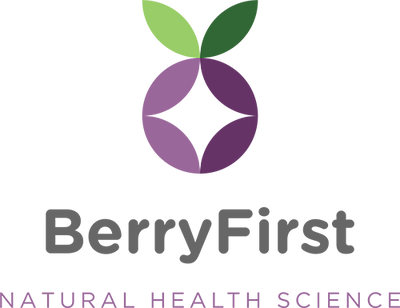BerryFirst Harp Seal Oil /Omega – 3 300 softgels OUT OF STOCK





Regular price $18.99
OUT OF STOCK
Harp Seal Oil is recognized as the best source of Omega-3 Fatty Acids, as it not only contains EPA and DHA, but also DPA. About a third of the long-chain Omega-3 fatty acids circulating in human blood are the result of DPA, which are the most important of the essential fatty acid family in maintaining soft, plaque free arterial walls. Harp seal oil is also more stable than fish oil, and less vulnerable to the natural process of oxidation.
Ingredients
MEDICINAL INGREDIENTS (PER SOFTGEL):
Harp Seal Oil.......................................................................500mg
Eicosapentaenoic Acid (EPA) .............................................. 30mg
Docosahexaenoic Acid (DHA) ............................................ 30mg
Docosapentaenoic acid (DPA) .............................................15mg
NON-MEDICINAL INGREDIENTS: Gelatin, Glycerin, and Purified Water.
Benefits
Omega-3 and Omega-6 essential fatty acids can produce prostaglandins in your body. Prostaglandins help reduce inflammation, pain and swelling. Prostaglandins control your blood pressure and help your heart, kidneys and digestive system. Prostaglandins also help control allergic reactions, blood clotting, and help produce other hormones.
Omega-3 fatty acids cannot be naturally produced within the body. Ordinary people simply do not eat foods containing sufficient Omega-3 in order to benefit from many medicinal properties. Not enough Omega-3 makes yourself more susceptible to heart disease, cancer, diabetes and asthma. In order to achieve the optimal ratio of Omega-3 and Omega-6, it is recommended that you take Omega-3 supplements to offset the large intake of Omega-6, which is the standard in the diet of an average person.
There are three types of Omega-3 fatty acids: alpha linolenic acid (LNA), eicosapentaenoic acid (EPA) and docosahexaenoic acid (DHA). LNA is found in plant foods such as nuts, soy, rapeseed oil and flaxseed oil. EPA and DHA are found in both fish and seal oils. However, studies have shown that seal oil contains about 30% more EPA than fish oil. Docosapentaenoic acid (DPA, 22:5 n-3) is a long chain omega-3 fatty acid found in marine animals. DPA is ten times more effective at treating damaged blood vessels than EPA. Since fish contain very small amounts of DPA, higher doses of DPA in seal oils are more beneficial to your heart health. Studies have shown that higher DPA consumption can reduce the risk of coronary heart disease.
In the 1930s, Danish scientists were studying the indigenous population of Greenland. The researchers found that the local population had an extremely low incidence of heart disease. Further research links people's vitality to their diet, including large amounts of fatty fish and seal meat. Omega-3 fatty acids (EPA, DHA and DPA) were natural long-term solutions to prevent heart disease.
According to Health Canada, seal oil also helps to support the development of the brain, eyes, and nerves in children up to 12 years of age.
Directions
RECOMMENDED USAGE: Source of Omega 3, EPA, DHA, DPA for maintenance of good health.
RECOMMENDED DOSE: Take 2 softgels 1-3 times daily or as directed by a health practitioner.
STORAGE: Store at room temperature in a dry, dark place.
CAUTIONS: Please consult a health care practitioner if you are pregnant or breastfeeding.
NO PRESERVATIVES, ARTIFICIAL FLAVOUR OR COLOUR, WHEAT, DAIRY, SOY, GLUTEN, YEAST
OR SUGAR.
Scientific Evidence
Adler, Amanda I., et al. "Lower prevalence of impaired glucose tolerance and diabetes associated with daily seal oil or salmon consumption among Alaska Natives." Diabetes care 17.12 (1994): 1498-1501.
Brunborg, Linn Anne et al. "Nutritional composition of blubber and meat of hooded seal Cystophora cristata) and harp seal (Phagophilus groenlandicus) from Greenland." Food chemistry 96.4 (2006): 524-531.
Health Canada. "Natural Health Product Monograph – Seal Oil". June 22, 2009.
SHAHIDI, FEREIDOON, UDAYA WANASUNDARA, and N. BRUNET. "Oxidative stability of oil from blubber of harp seal (Phoca groenlandica) as assessed by NMR and standard procedures." Food research international 27.6 (1994): 555-562.





